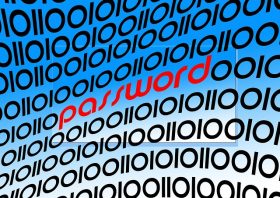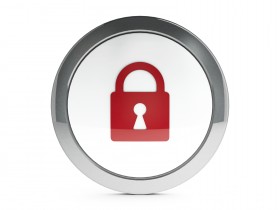I have no special talent. I am only passionately curious.
Einstein
After writing for over a decade about business email management to reduce business email overload it is sometimes hard to find material which adds anything new to what we know about how best to manage email to save time, improve well-being and performance. Often it’s the same tips and hints and studies just packaged differently. Over the last few weeks three have stood out.
1. Self promoting emails
Have you ever thought of using your Out-Of-Office message to promote yourself in your absence? For example, after telling the sender you are out of the office, then add a line about a recent success story, article about you, research paper etc. This is the latest trend being pushed by Harvard Business School to help you stand out in the ever crowded digital communications world. They suggest that research show that creating a positive view of yourself may help develop better more long standing network relationships. The jury is out on this one. Is it worthwhile or do such self-promoting emails actually have the reverse effect?
Do tell us what you think. Copy of Taking Control of Your Inbox for the best comments (for or against).
2.The state of email security?
In the last twelve month most organisations have seen a significant increase in email born cyber attacks and especially phishing attacks. This useful e-book (from Mimecast) highlights the status of email initiated cyber crime and provides advice on how to limit such attacks. Key is a robust training programme. This is something we, Mesmo Consultancy, would be pleased to talk to you about.
Meanwhile for some quick here and now tips to reduce the risk of cyber crime click here.
3.IORG Information Overload Day Webinar 2018
This year’s theme was cognitive science, addiction and information overload. One of the most interesting sessions was by Anne McGhee Stinson on ‘Neuroscience and Information Overload’. Specifically she talked about how our brain changes according to what we do and pay attention to. Her session is about 12 minutes in. Towards the end there is also a panel session which includes Dr Seeley on dealing with email addiction. Again if this is an issue for you or your colleagues why not call us to discuss how we have been helping other organisations. Click here for a quick check on your own personal level of email addiciton.
Tags: Business email management, Business email overload, Email Addiciton, Email born cyber crime, email cyber crime, email security, IORG
Here are five top tips to creating a strong password which are the first line of defence against cyber crime.
1. Strong passwords which are really very easy to construct and remember. Take a phrase and then build a password from the first letter of each word and turn some into capitals and numerics, for example make your ‘i’ and ‘1’ and add a couple of symbols. For example ‘I love playing golf in the summer at Parkstone Golf Club’ can become 1Lp9itS@Pgc.
2. Consider using some form of password management software such as LastPass, Zoho Vault and Dashlane.
3. Where you have a choice adopt devices which have more than just password protection for example finger and retina recognition.
4. Try to avoid logging in to accounts with your social media accounts. Instead create a new password.
5. When using a mobile device use an app which mask your typing such as Blur.
Don’t forget too to be extra vigilant with your email account because email is often the open backdoor for a cyber attack.
For more about how Mesmo Consultancy is helping our clients to reduce the risk of email cyber crime through email best practice contact us now.
Tags: Blur, DashLane, email cyber crime, Facebook hacked, KeePass, LastPass, Strong Password, Zoho Vault
Not surprisingly most articles which have caught our attention relate to the challenge of whether or not to disconnect whilst on holiday. Here are a few which should give you food for thought about why and how to go for an email detox and disconnect.

And just in case you are careless with your Out of Office message.
So before you take your vacation, be sure to set a safe and simple Out of Office message which discloses as little information as possible. Then switch off and have a proper break to re-charge the batteries.
Tags: cyber crime, Digital detox, email cyber crime, Email detox, email free vacation
Who is the weakest link in the fight against cyber crime? It is us the user. Click here to listen to how we leak data ever day through careless use of email. Without thinking we have either opened or sent an email which opens the door to cyber crime be it hacking, stealing our identity (phishing) and giving away confidential data.
There are many ways we can manage our email behaviour to reduce the risk to ourselves and our organisation of a breach of confidentiality and improve email related security. Here are our top five tips.

Email cyber crime
Education is the key to reducing the risk of an email predicated cyber attack. For a free five minute review of your email security behaviour and how you can improve it either call Mesmo Consultancy on 01202 434340 or email us now to book an appointment.
Tags: bcc, cyber crime, email cyber crime, email security, Mesmo Consultancy
According to recent research from Centrify (providers of identity management services) forgetting your password is more annoying than spam email.
The cost of cyber crime has doubled in the past four years according to recent research from Ponemon. Strong passwords is one way to prevent prying eyes but  just how easy is it to construct one? Also is it good to keep changing your password?
just how easy is it to construct one? Also is it good to keep changing your password?
Back in 2010 Microsoft found that changing security words often cost billions of pounds as people wasted time constructing and memorising them and then forgetting them and worse leaving them unsecured.
Centrify now estimate that poor password management costs around £130,500 per year for a business of about 500 users. How they arrive at that figure is not clear. What is clear is that we really are not good at the basics of identity management. The top five mistakes being:
1. Always use the same password whenever possible.
2. Rotate through a variety of similar passwords.
3. Keep a written password in a master book of passwords.
4. Use personal information in a password.
5. Avoid using complicated symbols or combining upper and lower case.
Security management behaviour can easily be improved although it often takes a cyber attack (personal or corporate) as a wake up call. User education is key to reducing cyber crime. Here are our five top tips.
1. Avoid the traps identified above.
2. Second, use strong passwords which are really very easy to construct and remember. Take a phrase and then build a password from the first letter of each word and turn some into capitals and numerics, for example make your ‘i’ and ‘1’ and add a couple of symbols.
3. For those with multiple accounts consider using some form of password management software such as LastPass or Keepass.
4. Where you have a choice adopt devices which have more than just password protection for example finger and retina recognition.
5. Be vigilant about those emails which grab your attention telling you your accounts has been hacked. Delete them without even opening them as they are almost certainly from spammers attempting some form of identity theft.
Email is often the open backdoor for a cyber attack. For more about how we help our clients to reduce the risk of email cyber crime through email best practice contact us now.
Tags: Centrify, cyber crime, email best practice, email cyber crime, KeePass, LastPass, Password Management, Ponemon, Spam, Strong Password